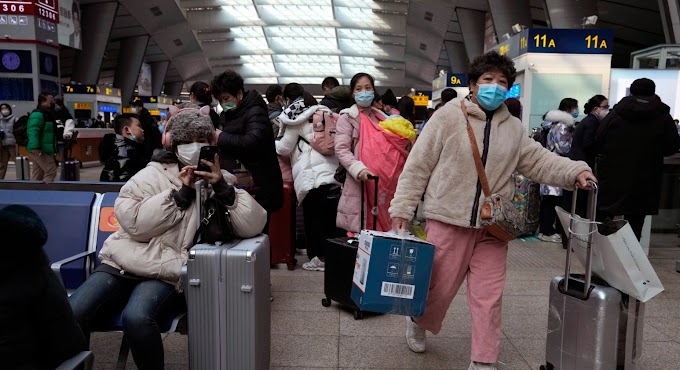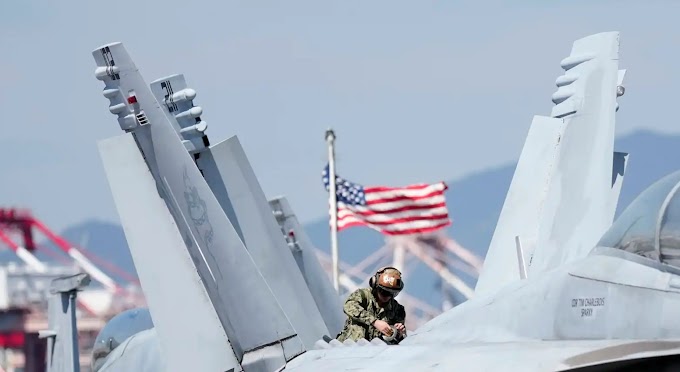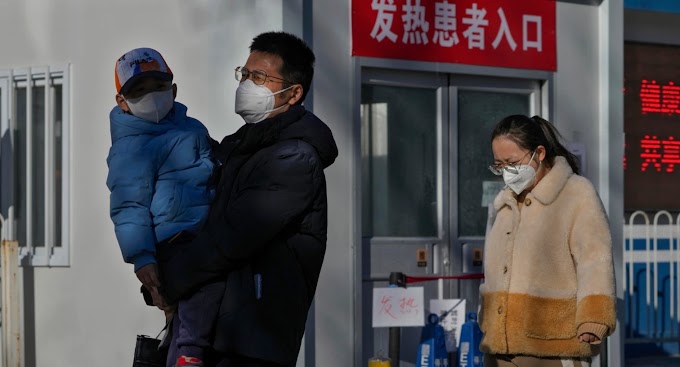Kissinger calls on Ukraine to negotiate peace, Kyiv rejects offer.
 |
| Former U.S. Secretary of State Kissinger delivered a speech at the National Committee on U.S.-China Relations (November 2014, photo by Fang Bing, Voice of America) |
Veteran US diplomat Henry Kissinger said the time was near for Ukraine to negotiate a peace that would reduce the risk of another devastating world war, but the Kyiv government dismissed his comments as amounting to "pacifying aggression" ” and said an agreement involving territorial concessions was impossible.
Kissinger, 99, was secretary of state under Republican presidents Richard Nixon and Gerald Ford and was the architect of the Cold War détente with the Soviet Union. He has met with Putin several times since Putin first became president of Russia in 2000.
There is no sign of ending the conflict sparked by Putin's Feb. 24 invasion of Ukraine, which has killed tens of thousands and displaced millions. The United States and Western allies criticized the invasion.
Russia now controls about a fifth of Ukraine.
The Kremlin said Kyiv must recognize Moscow's annexation of the south and east. Ukraine says every Russian soldier must leave its territory, including Crimea, which Russia annexed in 2014. Kyiv applied to join NATO after Moscow announced the subsequent annexation in September.
Kissinger wrote in the Spectator: "The time is coming to build on the strategic changes already made and integrate them into a new structure for a negotiated peace."
Kissinger wrote, "The peace process should link Ukraine with NATO, however it is expressed. The option of neutrality no longer makes sense."
Kissinger said he proposed a ceasefire in May and that Russia would withdraw to the borders it had before the February invasion, but that Crimea would be the subject of "negotiations".
The conflict in eastern Ukraine began in 2014 when a pro-Russian president was overthrown in Ukraine, Russia annexed Crimea and Russian-backed separatists fought Ukrainian armed forces in eastern Ukraine.
Ukrainian presidential aide Mikhailo Podolak said on the social platform "Telegram", "Mr. Kissinger still does not understand anything ... neither the nature of this war nor its impact on world order. Impact."
“The prescription that the former secretary of state demanded but was afraid to speak out was simple: appease the aggressor by sacrificing parts of Ukraine and promise not to invade the rest of Eastern Europe.”
He added, "All proponents of easy solutions should remember the obvious: any deal with the devil - a bad peace at the expense of Ukrainian territory - would be a victory for Putin, and a success for dictators around the world good recipe."
Kremlin officials could not be reached for comment late Sunday.
CIA Director William Burns said in an interview published Saturday that while most conflicts end in negotiations, the CIA's assessment is that Russia is not yet serious about real talks to end the war.
Ukraine and the West say Putin has no reason to justify what they say is an imperial war of occupation.
Kissinger warned that the desire to make Russia "incompetent", or even seek to dismantle it, could lead to chaos. Neither Ukraine nor any Western country is advocating either path.
(This article is based on a Reuters report)







